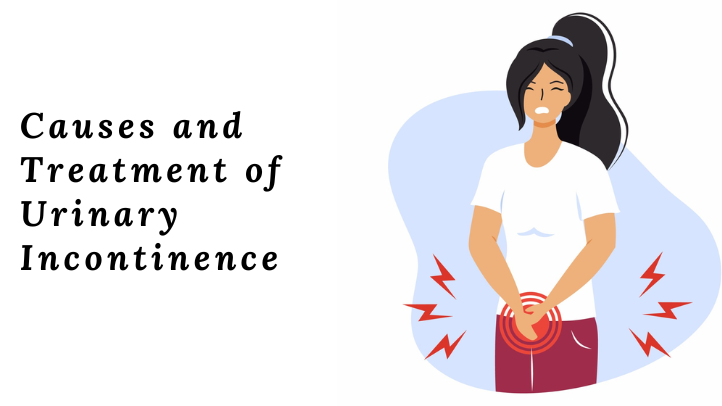
Causes and Treatment of Urinary Incontinence – Urinal incontinence is the loss of control of your bladder. It’s one of the most common and embarrassing health issues. The symptoms of urinary incontinence can range from occasional urination when you’re coughing or sneezing to sudden and intense urination that you can’t get to the bathroom in time.
It can affect any person. However, it is more likely to occur in certain groups of people and at certain ages. Women suffer more from urinary incontinence than men. Pregnancy, birth, menopause, and other life changes can cause a woman’s pelvic support muscles to weaken. It is also more common with getting older. Over time, the muscles that support the pelvic organs become weaker, leading to urinary leakage issues. There are multiple causes and treatments of urinary incontinence that are discussed in great length here.
Urine incontinence is the involuntary release of urine by the body. It can range from occasional, mild leakage to complete loss of control of the bladder. Urinary Consequences of incontinence can come from a variety of sources. The reasons for incontinence can differ depending on whether you are a woman or a man.
Urinary incontinence can have various causes, depending on the type and severity of the condition. Some urinary incontinence is caused by temporary health conditions. These conditions usually go away after treatment. Some common causes include:
Pelvic floor muscles are the muscles that hold the bladder in place and regulate the flow of urine. Stress incontinence is when the pressure on your bladder causes you to leak urine when you cough, sneeze, laugh, or exercise. These muscles may be weak from birth, pregnancy, getting older, or from certain medical issues.
when the urge to urinate is sudden and intense, followed by involuntary leakage. Urinary incontinence can be caused by overactive bladder muscles. Overactive bladder muscles can be caused by UTIs, bladder irritation, neurological conditions, or damage to your bladder nerves.
Urinary tract obstruction is a condition that restricts the normal movement of urine through your urinary system. Overflow incontinence occurs when your bladder does not empty, resulting in constant or frequent urination.
Uterine tract obstruction can be caused by:
Stroke, Spinal Cord Injury, Diabetes, Alzheimer’s Disease, Multiple Sclerosis, and other neurological disorders can cause nerve damage or dysfunction in the nerves that regulate bladder function, leading to different kinds of incontinence.
Hormonal changes, especially during pregnancy, labour and delivery, and post-menopausal conditions, can reduce the amount of estrogen in your body, which in turn can reduce your bladder function and increase your risk for incontinence due to weakened pelvic floor muscles and urinary bladder tissues.
Chronic medical conditions, including diabetes, obesity, COPD, and heart disease, can also contribute to urinary incontinence risk by impacting the function of the urinary bladder and urinary tract.
The stress urinary incontinence treatment plan will be based on many different factors. The type of incontinence and how it impacts your life are two of the most important things to consider. Dr Ahuja will discuss with you what type of treatment works best for you.
If you’ve tried other non-surgical treatments that haven’t worked for you, there are several procedures your provider may recommend. These can range from injections to surgery, depending on your specific incontinence type and symptoms. They’ll work together to determine the best procedure for you.
We hope you found the information on the Causes and Treatment of Urinary Incontinence useful and got a clear understanding if you have any doubts or queries about the same visit Dr Ahuja Clinic in Chandigarh for better treatment and diagnosis.
Copyright © 2025 Dr Ahuja Clinic. All Rights Reserved | Marketing by : WebHopers
Website Design by CSW Technologies